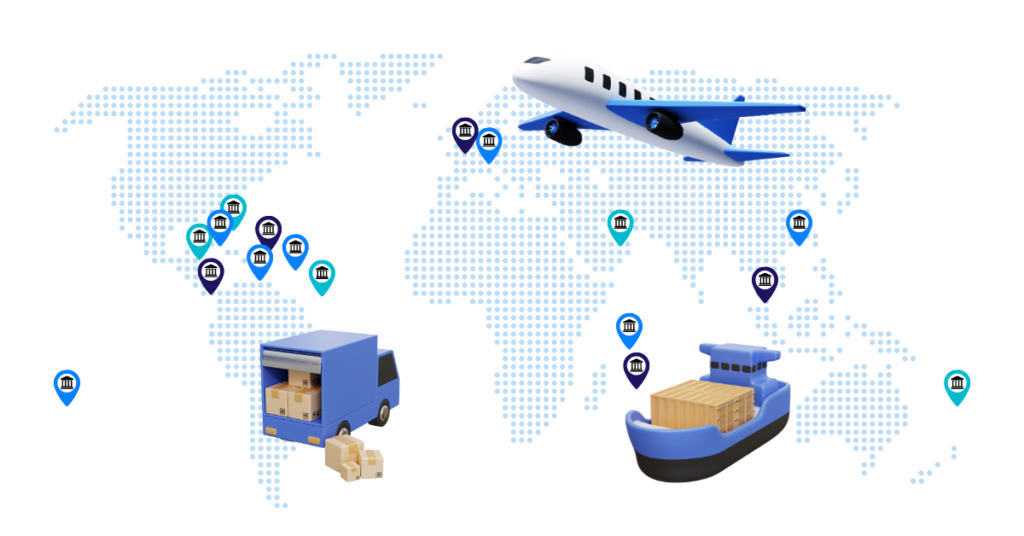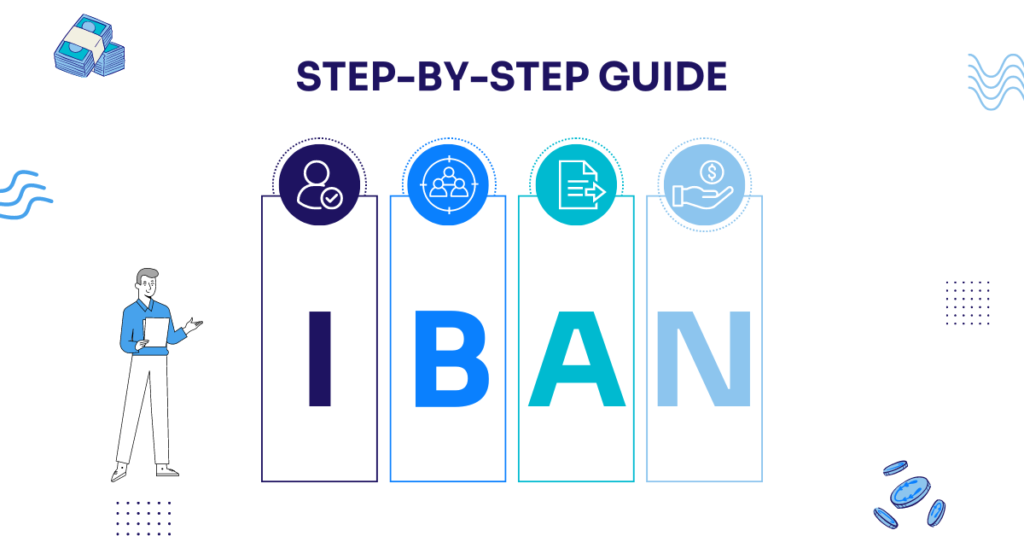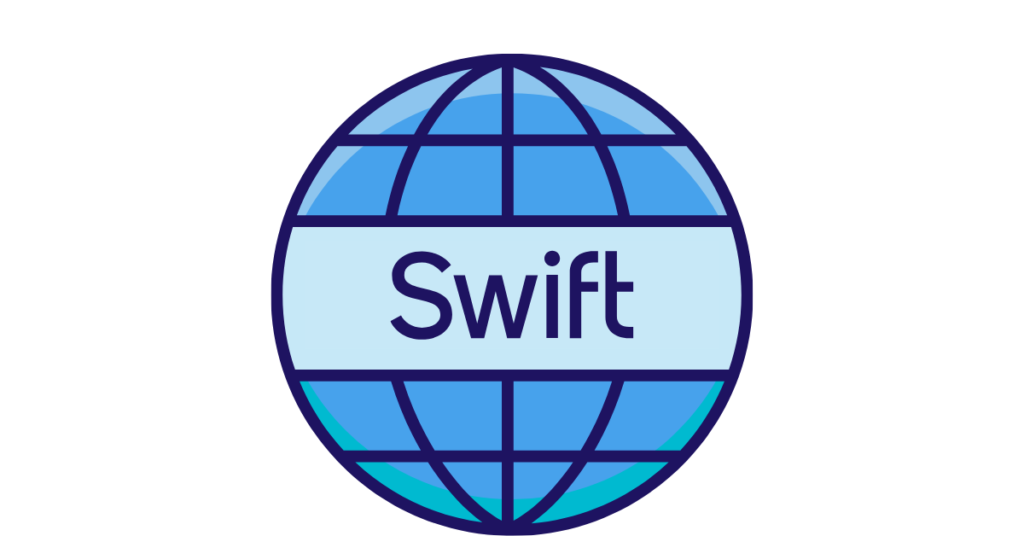What is Wholesale Foreign Exchange?
The foreign exchange (Forex) market is a global marketplace for trading national currencies against one another. With an average daily trading volume currently at $7.5 trillion and expected to grow to $7,523.28 billion in 2023 at a compound annual growth rate (CAGR) of 10.8%, the Forex market is the largest and most liquid financial market in the world. For businesses operating in the global economy, understanding the intricacies of the Forex market is crucial for managing currency risks and optimizing financial performance.
Wholesale Foreign Exchange refers to the large-scale trading of foreign currencies between institutional players in the Forex market. Unlike retail Forex, where individual traders buy and sell currencies in smaller volumes, wholesale transactions involve significantly larger trade sizes, often exceeding millions or even billions of dollars. The participants in the wholesale foreign exchange market include central banks, commercial banks, hedge funds, multinational corporations, and other financial institutions.
How Does Wholesale Foreign Exchange Work?
Interbank Market
The core of the wholesale foreign exchange market is the interbank market, where large financial institutions trade currencies with each other. The interbank market operates on an over-the-counter (OTC) basis, meaning there is no centralised exchange. Instead, transactions are conducted electronically through a network of banks.
Trading Pairs
In wholesale Forex, currencies are traded in pairs, such as EUR/USD or GBP/JPY. One currency is bought while the other is sold, based on the expectation that one currency will strengthen or weaken relative to the other.
Bid-Ask Spread
The difference between the buying price (bid) and the selling price (ask) is known as the bid-ask spread. In the wholesale market, the bid-ask spread is generally much narrower than in the retail market, due to the larger trade volumes and higher liquidity.
Settlement
Transactions in the wholesale foreign exchange market are typically settled within one to two business days. The most common settlement system is the Continuous Linked Settlement (CLS), which mitigates settlement risk by ensuring that both sides of the transaction are settled simultaneously.
Trading Hours
The wholesale foreign exchange market operates 24 hours a day, five days a week, allowing for continuous trading and the ability to respond to global events in real-time.
Pricing and Quotation
Pricing in the wholesale foreign exchange market is determined by supply and demand dynamics. Large financial institutions often have dedicated trading desks that provide currency quotes based on real-time market data.
Risk Management
Given the large volumes involved, risk management is a critical aspect of wholesale foreign exchange. Participants often use various financial instruments, such as forward contracts, futures, and options, to hedge against currency risk.
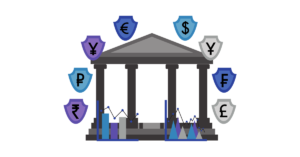
Types of Wholesale Foreign Exchange
There are several types of wholesale foreign exchange activities that differ based on the instruments used, the purpose of the trade, and the participants involved. Here are some of the main types:
Spot Market
In the spot market, currencies are bought and sold for immediate delivery. The transaction is settled “on the spot,” usually within two business days.
Forward Market
In the forward market, parties agree to exchange currencies at a future date at a predetermined rate. This helps businesses hedge against future currency risk.
Swap Market
Currency swaps involve the simultaneous purchase and sale of the same amount of a currency at two different dates. This is often used for rollover strategies and long-term hedging.
Futures Market
Currency futures are standardised contracts to buy or sell a specific currency at a future date at a predetermined price. These are traded on regulated exchanges.
Options Market
In the options market, the buyer has the right but not the obligation to buy or sell a currency at a predetermined rate on or before a specified date.
Interbank Market
This is the core of the wholesale foreign exchange market, where large financial institutions trade currencies with each other on an over-the-counter (OTC) basis.
Algorithmic Trading
Some institutions use algorithmic strategies to execute large orders without significantly impacting the market price.
High-Frequency Trading (HFT)
This involves executing a large number of orders in fractions of a second, often to take advantage of small price gaps.
Arbitrage
This involves buying and selling the same currency in different markets to take advantage of differing prices for the same asset.
Proprietary Trading
Some large financial institutions engage in proprietary trading, where they use their own capital to take positions in the currency markets, aiming for direct financial gain rather than client servicing.
Each of these types of wholesale foreign exchange has its own set of rules, risks, and benefits. Businesses and financial institutions choose the type that best suits their needs, risk tolerance, and trading objectives.
Who Can Benefit from Wholesale Foreign Exchange?
Wholesale Foreign Exchange is not just for financial institutions. It can offer significant advantages to various types of businesses that operate on a global scale or deal with multi-currency transactions.
Here are some businesses for which Wholesale Foreign Exchange can be particularly beneficial:
Multinational Corporations
For companies operating in multiple countries, dealing with multiple currencies is inevitable. Wholesale Foreign Exchange allows these corporations to manage currency risk more effectively, secure better exchange rates, and optimise their global financial operations.
Import/Export Companies
Businesses involved in international trade are exposed to currency risk due to fluctuating exchange rates. Wholesale Foreign Exchange provides these companies with the tools to hedge against unfavourable currency movements, thereby protecting their profit margins.
E-commerce Businesses
Online retailers that sell products internationally can benefit from Wholesale Foreign Exchange by securing more favourable exchange rates for transactions in foreign currencies, thereby increasing profitability.
Investment Firms
Investment firms that manage global portfolios are exposed to currency risk due to their international holdings. Wholesale Foreign Exchange allows these firms to hedge against currency risk, ensuring that the value of their assets is not adversely affected by currency fluctuations.
Airlines and Travel Companies
These businesses deal with customers from around the world and often have costs in multiple currencies. Wholesale Foreign Exchange allows them to manage currency risk more effectively, which is crucial for an industry with thin profit margins.
Real Estate Firms
Companies involved in international real estate can use Wholesale Foreign Exchange to manage payments and receipts in multiple currencies, secure better rates, and protect against currency risk, especially in markets with high volatility.
Energy Companies
Energy companies often operate in multiple countries and deal with contracts that are priced in various currencies. Wholesale Foreign Exchange allows them to hedge against currency risks associated with their international operations.
Manufacturing Companies
Manufacturers sourcing raw materials from different countries can use Wholesale Foreign Exchange to secure favourable rates and hedge against currency risk, thereby protecting their operational costs.
Technology Companies
Tech companies with a global customer base or those that outsource development to other countries can benefit from Wholesale Foreign Exchange by managing multi-currency revenues and expenses more efficiently.
Healthcare Providers
Healthcare companies that operate internationally can use Wholesale Foreign Exchange to manage payments for international staff, equipment, and even cross-border partnerships, thereby optimising their financial operations.
Advantages of Wholesale Foreign Exchange
- Liquidity: The wholesale market offers unparalleled liquidity, making it easier to execute large trades without significantly impacting the market price.
- Lower Costs: The bid-ask spreads are narrower, resulting in lower transaction costs for participants.
- Flexibility: The market operates around the clock, offering the flexibility to respond to global events and market shifts in real-time.
- Advanced Tools: Wholesale participants have access to sophisticated trading platforms and risk management tools, tailored to meet the needs of institutional traders.
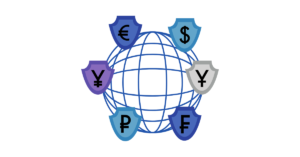
Key Considerations for Businesses
Navigating the Wholesale Foreign Exchange market can be complex, but it offers significant advantages for businesses involved in international trade or multi-currency transactions.
Important considerations for businesses looking to leverage the benefits of Wholesale Foreign Exchange are:
Risk Management
One of the primary reasons businesses engage in Wholesale Foreign Exchange is to manage currency risk. It’s crucial to have a well-defined risk management strategy that outlines how to hedge against unfavourable currency movements. Various financial instruments like forward contracts, futures, and options can be used for this purpose.
Liquidity Requirements
Wholesale Foreign Exchange involves trading large volumes of currency, so businesses must assess their liquidity needs carefully. Companies need to ensure they have sufficient capital to engage in wholesale trading without affecting their operational liquidity.
Cost Analysis
While the Wholesale Foreign Exchange market generally offers narrower bid-ask spreads, it’s essential to consider all associated costs, including transaction fees and any charges for using risk management tools. A comprehensive cost analysis will provide a clearer picture of the financial implications of engaging in wholesale trading.
Regulatory Compliance
The Forex market is decentralised, but businesses must still comply with local and international regulations, including anti-money laundering (AML) and know-your-customer (KYC) requirements. Non-compliance can result in hefty fines and reputational damage.
Counterparty Risk
In the Wholesale Foreign Exchange market, you’re dealing with large financial institutions as counterparties. It’s crucial to assess the creditworthiness and reliability of these institutions to mitigate counterparty risk.
Technology Infrastructure
Advanced trading platforms and software are often required for Wholesale Foreign Exchange trading. Businesses need to invest in robust technology infrastructure that allows for real-time trading, analytics, and risk management.
Market Timing
The Forex market is open 24/5, offering the flexibility to respond to global events in real-time. However, market timing can significantly impact the profitability of trades. Businesses need to be aware of market conditions and geopolitical events that could affect currency values.
Contract Specifications
Wholesale Foreign Exchange contracts can be highly customised. Businesses must understand the specifications of the contracts they enter into, including the settlement date, delivery methods, and other terms and conditions.
Expertise and Skills
Wholesale Foreign Exchange trading requires a specific skill set and expertise. Businesses should consider hiring or consulting with experts who understand the complexities of the Forex market, including trading strategies and risk management techniques.
Scalability
As your business grows, your foreign exchange needs may also increase. The Wholesale Foreign Exchange market offers the scalability to handle larger volumes, but businesses must continually reassess their strategies to ensure they align with their growth objectives.
The Competitive Edge of Wholesale Forex
Wholesale Foreign Exchange (Forex) is a vital component of the global financial landscape, offering businesses and financial institutions a powerful tool to manage currency risks and optimise financial performance. The Forex market, with its staggering daily trading volume, plays a pivotal role in facilitating large-scale transactions between institutional players.
Different types of wholesale Forex activities cater to various needs and risk tolerances. These instruments empower businesses to protect their bottom line from currency fluctuations while securing favourable exchange rates.
Wholesale Foreign Exchange isn’t limited to financial giants; it extends its benefits to multinational corporations, import/export firms, e-commerce businesses, investment firms, and many others. The advantages include unmatched liquidity, cost savings, flexibility, and access to advanced trading tools.
In a global economy where currency risks are a constant concern, Wholesale Foreign Exchange emerges as a valuable resource, enabling businesses to navigate the complexities of international trade and multi-currency transactions with confidence and efficiency. Yet, navigating this intricate market requires caution and expertise.
Capitalixe forges partnerships with top-tier financial institutions, delivering expert foreign exchange services. We have access to spot contracts, forward contracts, market orders, swaps, vanilla options, and more. In addition to our deliverable FX services, we excel in facilitating large-value OTC crypto trading at competitive spreads. Reach out to our team of specialists for a complimentary consultation, and discover how your business can harness the incredible power of Wholesale Foreign Exchange!



